Avocado, scientifically known as Persea americana, has emerged as a nutritional powerhouse in recent years, garnering attention for its diverse health benefits. This fruit, native to Central America, is not only delicious but also packed with essential nutrients, making it a valuable addition to any diet. Let’s delve into the scientific evidence supporting the myriad benefits of avocado consumption.
 Heart Health
Heart Health
Unlike many other fruits, avocados are rich in monounsaturated fats, specifically oleic acid, which have been shown to have favorable effects on cardiovascular health. Oleic acid helps lower levels of LDL cholesterol, the type of cholesterol associated with an increased risk of heart disease, while simultaneously increasing levels of HDL cholesterol, the “good” cholesterol that helps remove LDL cholesterol from the bloodstream.
Moreover, avocados are an excellent source of fiber, both soluble and insoluble, which plays a crucial role in maintaining healthy cholesterol levels and supporting digestive health. The fiber content of avocados helps reduce the absorption of cholesterol from the diet, further contributing to their cholesterol-lowering effects. Additionally, avocados contain plant sterols, natural compounds that structurally resemble cholesterol and compete with cholesterol for absorption in the intestines. By inhibiting the absorption of dietary cholesterol, plant sterols help lower LDL cholesterol levels and improve overall lipid profile.
Beyond their cholesterol-lowering properties, avocados offer additional cardiovascular benefits due to their rich array of vitamins, minerals, and antioxidants. Avocados are an abundant source of potassium, a mineral that helps regulate blood pressure by counteracting the effects of sodium and promoting vasodilation. Adequate potassium intake is associated with a reduced risk of hypertension and stroke, making avocados a valuable addition to a heart-healthy diet.
Furthermore, avocados provide an array of antioxidants, including vitamin E, vitamin C, and various phytochemicals, which help combat oxidative stress and inflammation, two underlying factors in the development of cardiovascular disease. These antioxidants protect the delicate endothelial lining of blood vessels, reduce the formation of plaque in arteries, and improve overall vascular function. By nourishing the cardiovascular system with a diverse array of nutrients, avocados offer comprehensive support for heart health, making them a valuable ally in the quest for optimal cardiovascular well-being.
 Weight Management
Weight Management
Despite being calorie-dense, avocados can be beneficial for weight management. Studies have shown that the monounsaturated fats in avocados contribute to increased satiety and reduced appetite, potentially aiding in weight loss and weight maintenance. Moreover, the fiber content of avocados supports digestive health and may prevent overeating by promoting feelings of fullness.
In addition to their satiating properties, avocados offer several unique characteristics that make them conducive to weight management. Unlike many high-calorie foods that are low in nutritional value, avocados are nutrient-dense, meaning they provide a significant amount of vitamins, minerals, and beneficial plant compounds relative to their calorie content. This nutrient density ensures that individuals can satisfy their nutritional needs while consuming fewer overall calories, supporting sustainable weight loss and maintenance efforts.
Furthermore, the monounsaturated fats found in avocados have been linked to improvements in metabolic health, including enhanced insulin sensitivity and reduced inflammation. These metabolic benefits not only support weight management but also help mitigate the risk of obesity-related diseases such as type 2 diabetes and cardiovascular disease. By incorporating avocados into a balanced diet, individuals can optimize their metabolic function and promote long-term weight loss success.
 Blood Sugar Regulation
Blood Sugar Regulation
Avocado consumption may also help regulate blood sugar levels, which is crucial for individuals with diabetes or those at risk of developing the condition. Research published in the Journal of Clinical Lipidology suggests that the monounsaturated fats in avocados can improve insulin sensitivity, thereby reducing the risk of insulin resistance and type 2 diabetes.
Avocado’s unique composition makes it an excellent choice for blood sugar management. Unlike many other fruits, avocados are low in carbohydrates and sugars while being rich in fiber and healthy fats. This combination results in a gradual and steady release of glucose into the bloodstream, helping to prevent sudden spikes and crashes in blood sugar levels.
Furthermore, avocados contain a specific type of fat called oleic acid, which has been shown to enhance insulin sensitivity and promote glucose uptake by cells. This means that avocados not only help regulate blood sugar levels but also improve the body’s ability to utilize insulin effectively, reducing the strain on the pancreas and lowering the risk of developing insulin resistance.
Moreover, avocados are a good source of nutrients such as vitamin E, magnesium, and potassium, which play crucial roles in maintaining healthy blood sugar levels. Vitamin E, for example, acts as an antioxidant, protecting cells from oxidative stress and inflammation, both of which are linked to insulin resistance and diabetes. Magnesium is involved in glucose metabolism and insulin signaling, while potassium helps regulate blood pressure and insulin secretion.
 Eye Health
Eye Health
Avocados contain lutein and zeaxanthin, two antioxidants that are essential for eye health. These compounds help protect the eyes from age-related macular degeneration and cataracts by filtering harmful blue light and reducing oxidative stress in the retina. Incorporating avocados into the diet may thus contribute to maintaining optimal vision and eye function.
Avocado stands out among other fruits for its unique combination of nutrients that support eye health. Apart from lutein and zeaxanthin, avocados are rich in vitamin E, an antioxidant known for its protective effects against oxidative damage in the eyes. Vitamin E works synergistically with lutein and zeaxanthin to maintain the integrity of the eye’s tissues and combat inflammation, further enhancing the overall resilience of the ocular system.
Moreover, avocados provide a source of healthy fats, particularly monounsaturated fats, which are essential for the absorption of fat-soluble nutrients like lutein and zeaxanthin. These fats facilitate the transportation of these antioxidants from the digestive system to the eyes, ensuring their availability for optimal eye protection and function. Additionally, the presence of dietary fats in avocados helps improve the bioavailability of other beneficial nutrients, such as vitamins A, D, and K, which play supportive roles in maintaining eye health.
 Anti-Inflammatory Properties
Anti-Inflammatory Properties
Chronic inflammation is linked to various health conditions, including cardiovascular disease, arthritis, and certain cancers. Avocados possess anti-inflammatory properties attributed to their high levels of antioxidants, such as vitamin E and vitamin C, as well as phytochemicals like polyphenols and flavonoids. These compounds help combat oxidative stress and inflammation, thereby potentially reducing the risk of chronic diseases.
Unlike many other fruits, avocados are exceptionally high in monounsaturated fats, particularly oleic acid. This monounsaturated fatty acid has been shown to exert potent anti-inflammatory effects by modulating immune responses and inhibiting the production of pro-inflammatory molecules in the body. Additionally, the unique combination of nutrients in avocados, including potassium and folate, further contributes to their anti-inflammatory properties by supporting cellular function and DNA repair mechanisms.
Moreover, avocados contain specialized bioactive compounds, such as beta-sitosterol and lutein, which have been specifically linked to anti-inflammatory effects. Beta-sitosterol, a plant sterol found in avocados, has been shown to inhibit inflammatory pathways and reduce the production of inflammatory mediators, thus attenuating inflammation-associated tissue damage. Similarly, lutein, a carotenoid with antioxidant properties abundant in avocados, has demonstrated anti-inflammatory actions that may help protect against chronic inflammatory conditions, including age-related macular degeneration and cardiovascular disease.
 Brain Function
Brain Function
The nutrient-rich profile of avocados makes them beneficial for cognitive function and brain health. Avocados are particularly rich in vitamin E, which has been linked to improved cognitive performance and a reduced risk of neurodegenerative diseases like Alzheimer’s. Moreover, the monounsaturated fats in avocados support healthy blood flow to the brain, while their anti-inflammatory properties help protect neural cells from damage. Including avocados in your diet may thus contribute to enhanced memory, concentration, and overall brain function.
Furthermore, avocados contain a compound called lutein, which is a carotenoid known for its neuroprotective properties. Lutein accumulates in the brain, particularly in regions associated with learning and memory, where it acts as an antioxidant and shields neural cells from oxidative stress. This protection against oxidative damage helps preserve cognitive function and may play a role in preventing age-related cognitive decline.
In addition to its antioxidant and anti-inflammatory properties, avocados provide a steady supply of essential nutrients that support optimal brain health. These nutrients include folate, potassium, and omega-3 fatty acids, all of which are vital for neurotransmitter synthesis, nerve function, and communication within the brain. Folate, in particular, plays a crucial role in the production of serotonin, dopamine, and other neurotransmitters that regulate mood and cognitive processes.
Moreover, avocados boast a unique combination of bioactive compounds, such as phytosterols and flavonoids, which have been shown to exert protective effects on brain cells and enhance synaptic plasticity. Synaptic plasticity refers to the brain’s ability to form new connections between neurons and adapt to changing environments, a process that underlies learning and memory. By promoting synaptic plasticity, avocados may enhance cognitive flexibility, problem-solving abilities, and overall cognitive resilience.
 Digestive Health
Digestive Health
Avocados are an excellent source of dietary fiber, with one medium avocado providing approximately 13 grams of fiber, which is over half of the recommended daily intake for adults. Fiber is essential for maintaining digestive health as it promotes regular bowel movements, prevents constipation, and supports the growth of beneficial gut bacteria. Furthermore, the soluble fiber found in avocados helps regulate blood sugar levels and cholesterol levels, contributing to overall metabolic health. By promoting a healthy digestive system, avocados play a vital role in nutrient absorption and waste elimination, ensuring optimal functioning of the body.
In addition to its high fiber content, avocados offer unique prebiotic properties that support the growth and diversity of beneficial gut bacteria. These prebiotics, such as oligosaccharides, stimulate the proliferation of probiotic bacteria like Lactobacillus and Bifidobacterium in the gut. A diverse and balanced gut microbiota is associated with improved digestion, enhanced immune function, and reduced risk of gastrointestinal disorders. Incorporating avocados into the diet can thus contribute to a flourishing gut ecosystem, fostering optimal digestive health and overall well-being.
Avocados may offer relief for individuals suffering from irritable bowel syndrome (IBS), a common digestive disorder characterized by abdominal pain, bloating, and irregular bowel habits. The soluble fiber and healthy fats in avocados help soften stool, ease bowel movements, and alleviate discomfort associated with IBS. Furthermore, the monounsaturated fats in avocados have anti-inflammatory properties that can soothe intestinal inflammation and reduce symptoms of gastrointestinal distress. Including avocados in a well-balanced diet may thus provide symptomatic relief and improve the quality of life for individuals living with IBS.
Beyond promoting regularity and gut health, avocados play a crucial role in enhancing nutrient absorption and bioavailability. The healthy fats in avocados act as carriers for fat-soluble vitamins such as vitamin A, vitamin D, vitamin E, and vitamin K, facilitating their absorption in the intestines. Additionally, avocados contain carotenoids, such as beta-carotene and lutein, which are fat-soluble antioxidants that require dietary fat for optimal absorption. By incorporating avocados into meals, individuals can maximize the uptake of essential nutrients, ensuring efficient nutrient assimilation and utilization by the body.
Cancer Prevention
Emerging research suggests that the phytochemicals and antioxidants present in avocados may help reduce the risk of certain types of cancer. Avocados contain compounds such as carotenoids, tocopherols, and glutathione, which exhibit anti-cancer properties by neutralizing free radicals, inhibiting tumor growth, and inducing apoptosis (cell death) in cancer cells. While more studies are needed to fully understand the mechanisms underlying the anti-cancer effects of avocados, preliminary evidence indicates that regular consumption of this fruit may have protective effects against cancers of the breast, prostate, and skin.
Avocados stand out among other fruits and vegetables due to their exceptional nutrient profile, which includes high levels of monounsaturated fats and a diverse array of bioactive compounds. These compounds work synergistically to combat cancer through various mechanisms. For instance, the monounsaturated fats in avocados help regulate inflammatory pathways and support immune function, creating an unfavorable environment for cancer cell proliferation. Additionally, avocados are rich in fiber, which aids in the elimination of carcinogens and toxins from the body, further reducing cancer risk.
Moreover, avocados contain unique phytochemicals such as avocatin B, a compound found exclusively in avocados, which has shown promising anti-cancer properties in preclinical studies. Avocatin B has been found to selectively target leukemia stem cells, inhibiting their ability to proliferate and survive, thereby reducing the risk of leukemia development and recurrence. This targeted approach to cancer treatment distinguishes avocados as a potential therapeutic agent for certain types of cancer.
Furthermore, the combination of antioxidants found in avocados, including lutein, zeaxanthin, and vitamin E, contributes to their cancer-preventive effects by scavenging harmful free radicals and protecting cellular DNA from oxidative damage. This antioxidant activity not only reduces the risk of cancer initiation but also enhances the body’s ability to repair damaged cells and inhibit tumor progression.
Bone Health
Avocado consumption can contribute to overall bone health due to its rich nutritional profile. Avocados contain essential nutrients such as vitamin K, copper, and folate, which play crucial roles in bone metabolism and mineralization. Vitamin K is particularly important as it helps regulate calcium balance in the body and is essential for the synthesis of osteocalcin, a protein involved in bone formation. Additionally, avocados provide small amounts of minerals like magnesium and zinc, which are necessary for maintaining bone density and strength. Including avocados in your diet may thus help reduce the risk of osteoporosis and fractures, especially in older adults.
Unlike many other fruits, avocados are relatively low in oxalates, compounds that can interfere with calcium absorption and contribute to the formation of kidney stones. This characteristic sets avocados apart as an excellent dietary choice for individuals seeking to optimize calcium utilization and minimize the risk of kidney stone formation.Moreover, avocados contain phytochemicals such as carotenoids and flavonoids, which possess antioxidant and anti-inflammatory properties. These bioactive compounds may help reduce oxidative stress and inflammation in bone tissue, thereby promoting bone health and resilience.
Another noteworthy aspect of avocados is their balanced nutrient composition, which supports overall bone strength and integrity. While avocados are renowned for their healthy fat content, they also provide a moderate amount of protein, which is essential for maintaining bone structure and supporting muscle function. Additionally, avocados offer dietary fiber, which plays a role in promoting gut health and optimizing nutrient absorption, further enhancing the bioavailability of bone-supporting nutrients.
Furthermore, avocados boast a favorable ratio of omega-3 to omega-6 fatty acids, which contributes to a balanced inflammatory response in the body. Chronic inflammation is associated with bone loss and osteoporosis, so consuming foods like avocados that help modulate inflammation may offer protective benefits for bone health over time.
Improved Nutrient Absorption
The fats in avocados can enhance the absorption of fat-soluble vitamins and other nutrients from plant foods. Certain vitamins, such as vitamin A, D, E, and K, as well as antioxidants like carotenoids and lycopene, require dietary fat for optimal absorption. Avocados, with their healthy fat content, serve as a valuable nutrient booster when consumed with other plant-based foods. For example, adding avocado slices to a salad or pairing them with vegetables can increase the absorption of fat-soluble vitamins and phytonutrients, maximizing the nutritional benefits of your meal.
Oleic acid, the predominant fatty acid in avocados, has been shown to enhance the absorption of fat-soluble nutrients by promoting the formation of micelles, tiny structures that transport fat-soluble vitamins and antioxidants across the intestinal lining for absorption into the bloodstream. This specialized mechanism ensures that the valuable nutrients present in avocados and other plant-based foods are efficiently assimilated by the body, maximizing their bioavailability and health benefits.
Supports Liver Health
Avocados contain compounds like glutathione, a potent antioxidant that plays a critical role in liver detoxification and overall liver health. Glutathione helps neutralize harmful toxins and free radicals in the body, protecting liver cells from damage and promoting optimal liver function. Additionally, the monounsaturated fats in avocados may help reduce liver fat accumulation and inflammation, which are common risk factors for non-alcoholic fatty liver disease (NAFLD). Incorporating avocados into your diet can thus support liver health and mitigate the risk of liver-related disorders.
Unlike many other fruits, avocados are low in fructose, a type of sugar that can contribute to fatty liver disease and insulin resistance when consumed in excess. This low fructose content makes avocados a liver-friendly choice for individuals looking to support their liver function and minimize the risk of metabolic disorders.
In addition to their antioxidant and anti-inflammatory properties, avocados are rich in vitamins and minerals that are essential for liver health. For example, avocados are an excellent source of vitamin E, a fat-soluble antioxidant that helps protect liver cells from oxidative damage. Vitamin E also supports the liver’s natural detoxification processes by enhancing the production of enzymes involved in breaking down toxins and harmful substances.
Moreover, avocados provide an abundance of potassium, a mineral that plays a crucial role in maintaining fluid balance and electrolyte levels in the body. Proper fluid balance is essential for optimal liver function, as it ensures efficient toxin removal and waste elimination.
Enhanced Exercise Performance
Avocados can be a valuable addition to the diet of athletes and fitness enthusiasts due to their nutrient density and energy-providing properties. The combination of healthy fats, carbohydrates, vitamins, minerals, and antioxidants in avocados makes them an ideal pre- or post-workout snack for sustained energy and muscle recovery. Research suggests that the potassium content of avocados may help prevent muscle cramps and maintain electrolyte balance during prolonged exercise. Moreover, the anti-inflammatory effects of avocado phytonutrients may aid in reducing exercise-induced muscle soreness and promoting faster recovery.
Promotes Healthy Aging
As individuals age, maintaining optimal health becomes increasingly important for preserving quality of life and independence. Avocado consumption can contribute to healthy aging by providing essential nutrients that support various physiological functions. The antioxidants and anti-inflammatory compounds in avocados help protect against age-related oxidative stress and chronic inflammation, which are implicated in the development of age-related diseases such as cardiovascular disease, neurodegenerative disorders, and certain cancers. By incorporating avocados into their diet, older adults can potentially improve their overall healthspan and enjoy a higher quality of life as they age.
Nutritional value per 100 grams of avocado
- Calories: Approximately 160 kcal
- Fat: About 15 grams
- Saturated fat: Around 2.1 grams
- Monounsaturated fat: Approximately 10 grams
- Polyunsaturated fat: About 2 grams
- Cholesterol: 0 milligrams
- Sodium: Less than 10 milligrams
- Potassium: Around 485 milligrams
- Carbohydrates: Approximately 9 grams
- Dietary fiber: About 7 grams
- Sugars: Around 0.7 grams
- Protein: Roughly 2 grams
- Vitamin A: About 146 IU
- Vitamin C: Approximately 10 milligrams
- Vitamin E: Around 2.1 milligrams
- Vitamin K: About 21 micrograms
- Vitamin B6: Approximately 0.3 milligrams
- Folate: Around 81 micrograms
- Calcium: Approximately 12 milligrams
- Iron: About 0.6 milligrams
- Magnesium: Approximately 29 milligrams
- Phosphorus: Around 52 milligrams
- Zinc: Approximately 0.6 milligrams
These values may vary slightly depending on factors such as the avocado variety, ripeness, and growing conditions. However, they provide a general overview of the nutritional content of avocados per 100 grams.
Conclusion
In summary, the scientific evidence overwhelmingly supports the numerous health benefits of avocado consumption. From promoting heart health and weight management to regulating blood sugar levels and supporting eye health, avocados offer a plethora of advantages that make them a valuable addition to a balanced diet. Incorporating this nutrient-rich fruit into your meals not only enhances flavor but also contributes to overall well-being. So, next time you’re at the grocery store, don’t forget to stock up on avocados for a delicious and nutritious boost to your diet.
 Indulge in a burst of flavors with this delightful Avocado, Pancetta & Pine Nut Salad recipe from Jamie Oliver. Combining creamy avocado, crispy pancetta, and toasted pine nuts, this salad offers a tantalizing blend of textures and tastes. Perfect for a light lunch or a refreshing side dish, it’s a dish that celebrates the richness of avocado paired with the savory goodness of pancetta and the nutty crunch of pine nuts. Simple yet sophisticated, this salad is sure to impress your taste buds and elevate your dining experience. Let’s dive into the recipe and discover how to create this mouthwatering dish!
Indulge in a burst of flavors with this delightful Avocado, Pancetta & Pine Nut Salad recipe from Jamie Oliver. Combining creamy avocado, crispy pancetta, and toasted pine nuts, this salad offers a tantalizing blend of textures and tastes. Perfect for a light lunch or a refreshing side dish, it’s a dish that celebrates the richness of avocado paired with the savory goodness of pancetta and the nutty crunch of pine nuts. Simple yet sophisticated, this salad is sure to impress your taste buds and elevate your dining experience. Let’s dive into the recipe and discover how to create this mouthwatering dish!
Contraindications to consuming avocado
Allergies: While rare, some individuals may have allergies to avocado. Symptoms of avocado allergy may include itching or tingling in the mouth, swelling of the lips, tongue, or throat, difficulty breathing, or skin reactions such as hives or eczema.
Medication Interactions: Avocado may interact with certain medications, particularly blood thinners (anticoagulants) such as warfarin. Avocado contains vitamin K, which can interfere with the action of these medications. People taking blood thinners should consult with their healthcare provider before consuming large amounts of avocado.
Latex Sensitivity: Individuals who are allergic to latex may also experience cross-reactivity with certain fruits, including avocado. This cross-reactivity can cause symptoms such as itching, swelling, or hives. People with latex sensitivity should exercise caution when consuming avocado and monitor for any adverse reactions.
High Caloric Content: Avocado is relatively high in calories and fat compared to other fruits and vegetables. While the fats in avocado are predominantly healthy monounsaturated fats, excessive consumption may contribute to weight gain if not consumed in moderation as part of a balanced diet.
FODMAP Sensitivity: Avocado contains moderate amounts of polyols, which are fermentable carbohydrates known as FODMAPs (Fermentable Oligosaccharides, Disaccharides, Monosaccharides, and Polyols). Individuals with irritable bowel syndrome (IBS) or other gastrointestinal disorders sensitive to FODMAPs may experience digestive discomfort or symptoms such as bloating, gas, or diarrhea after consuming avocado.
Potential Oxalate Content: Avocado contains oxalates, naturally occurring compounds that can contribute to the formation of kidney stones in susceptible individuals. People with a history of kidney stones or those at risk of developing them may need to limit their intake of high-oxalate foods, including avocado.
It’s essential for individuals with specific health conditions or concerns to consult with their healthcare provider or a registered dietitian before making significant changes to their diet, including increasing their consumption of avocado.
Fascinating Facts About Avocado
- Ancient Origins:
While avocados might seem like a modern-day phenomenon, they boast a history that dates back thousands of years. Originating from Central America, avocados were cultivated by ancient civilizations such as the Aztecs and Mayans as early as 500 B.C. These cultures revered avocados not only for their culinary versatility but also for their perceived medicinal and fertility-enhancing properties.
- A Berry, Not a Vegetable:
Despite its savory taste and culinary use in salads and savory dishes, avocados are technically classified as a fruit, more specifically, a single-seeded berry. Botanically speaking, fruits develop from the ovary of a flowering plant and contain seeds, characteristics that avocados possess. This revelation might surprise many, as avocados are often mistaken for vegetables due to their savory flavor profile.
- The Alligator Pear:
In certain regions and historical contexts, avocados were affectionately referred to as “alligator pears” due to their rough, textured skin resembling that of an alligator and their pear-like shape. This whimsical moniker adds to the mystique surrounding avocados and underscores their unique appearance in the natural world.
- Slow Ripening:
Unlike most fruits, which ripen relatively quickly after being harvested, avocados exhibit a notably slow ripening process. This characteristic is attributed to the fruit’s high oil content and protective skin, which help delay spoilage. Interestingly, avocados ripen best when stored at room temperature, and their ripening can be accelerated by placing them in a paper bag with other fruits, such as bananas or apples, which release ethylene gas, a natural ripening agent.
- Avocado Varieties Galore:
Avocado enthusiasts might be surprised to learn that there are hundreds of avocado varieties, each boasting its unique flavor, texture, and appearance. From the creamy Hass avocado, with its pebbled skin and buttery taste, to the slim, elongated Fuerte avocado, avocados come in a diverse array of shapes, sizes, and colors. Some lesser-known varieties include the velvety Pinkerton, the petite Reed, and the smooth-skinned Bacon avocado, each offering its distinct culinary experience.
- Avocado Toast Origins:
While avocado toast has become a ubiquitous culinary trend in recent years, its origins can be traced back further than one might expect. In 1920s California, a cookbook called “The Book of California” featured a recipe for “avocado on toast,” which served as an early precursor to the contemporary avocado toast craze. However, it wasn’t until the early 2010s that avocado toast gained widespread popularity, fueled by social media and the rise of health-conscious eating trends.
- Avocado Beer:
Avocado enthusiasts with a taste for craft beer might be intrigued to learn about the existence of avocado-infused brews. Some breweries have experimented with incorporating avocado into their beer recipes, adding a unique twist to traditional brews. Avocado beer typically features subtle avocado flavors and creamy textures, offering beer aficionados a novel and adventurous drinking experience.
- Avocado Chocolate:
Avocado’s creamy texture and mild flavor make it an unexpected but surprisingly suitable ingredient in chocolate desserts. Avocado chocolate mousse, for example, has gained popularity as a healthier alternative to traditional mousse recipes. By blending ripe avocado with cocoa powder, sweeteners, and other flavorings, it’s possible to create a decadent and indulgent chocolate treat that’s also rich in nutrients.
- Avocado Dye
Avocado pits and skins contain natural tannins that can be used as a dyeing agent for textiles and fabrics. When simmered in water, avocado pits release a reddish-brown pigment that can impart earthy hues to yarn, fabric, or paper. This eco-friendly dyeing method offers a sustainable alternative to synthetic dyes, appealing to environmentally conscious artisans and DIY enthusiasts.
- Avocado Hair Masks:
Avocado isn’t just beneficial for the skin and body; it’s also prized for its nourishing properties in hair care. DIY hair masks made from mashed avocado, honey, and coconut oil are touted for their ability to moisturize and condition hair, leaving it soft, shiny, and manageable. The natural oils and vitamins in avocado penetrate the hair shaft, promoting hydration and restoring vitality to dry or damaged locks.
- Avocado Pollination Mystery:
Avocado trees have an unusual method of pollination that baffled scientists for decades. Unlike most fruit trees, which rely on bees and other insects for pollination, avocados are primarily pollinated by bees and other insects. Instead, avocado flowers possess a unique anatomical feature known as “protandry,” where the flowers open as female in the morning and then become male in the afternoon, promoting cross-pollination within the same tree.
- Avocado Trees and Height Records:
Avocado trees are renowned for their impressive size and longevity, with some specimens reaching towering heights and living for centuries. In fact, the Guinness World Records recognized a towering avocado tree in the Dominican Republic as the world’s tallest fruit-bearing tree, standing at an astonishing height of over 65 feet (20 meters). This colossal tree serves as a testament to the remarkable growth potential of avocado trees under optimal conditions.
- Avocado Butter:
While avocado is commonly enjoyed in its whole form or mashed into guacamole, it can also be processed into a luxurious spread known as avocado butter. Avocado butter is made by blending ripe avocado with oils and emulsifiers to create a creamy, spreadable consistency reminiscent of dairy butter. This vegan-friendly alternative offers a rich, buttery flavor and can be used as a topping for toast, crackers, or baked goods.
- Avocado Pericarp Carpaccio:
Avocado pericarp, the outermost layer of the avocado skin, is typically discarded or composted after the fruit is eaten. However, innovative chefs have found ways to repurpose avocado pericarp as an edible ingredient in dishes such as avocado pericarp carpaccio. Thinly sliced avocado pericarp is marinated in citrus juice, olive oil, and seasonings, then served as a colorful and flavorful component of salads, appetizers, or garnishes.
- Avocado Leaf Tea:
While avocado fruit is the star of the show, avocado leaves also harbor unique culinary potential. Avocado leaf tea, brewed from dried avocado leaves, is a traditional beverage in certain cultures and is prized for its herbal aroma and mild, earthy flavor. Avocado leaf tea is believed to possess various health benefits, including aiding digestion, reducing inflammation, and promoting relaxation.
To explore more plants, please visit our page about plants
References
Wang L, Bordi PL, Fleming JA, Hill AM, Kris-Etherton PM. Effect of a moderate fat diet with and without avocados on lipoprotein particle number, size and subclasses in overweight and obese adults: a randomized, controlled trial. J Am Heart Assoc. 2015;4(1):e001355.
Wien M, Haddad E, Oda K, Sabaté J. A randomized 3×3 crossover study to evaluate the effect of Hass avocado intake on post-ingestive satiety, glucose and insulin levels, and subsequent energy intake in overweight adults. Nutr J. 2013;12:155.
Li Z, Wong A, Henning SM, Zhang Y, Jones A, Zerlin A, Thames G, Bowerman S, Tseng CH, Heber D. Hass avocado modulates postprandial vascular reactivity and postprandial inflammatory responses to a hamburger meal in healthy volunteers. Food Funct. 2013;4(3):384-91.
Boileau TW, Boileau AC, Erdman JW Jr. Bioavailability of all-trans and cis-isomers of lycopene. Exp Biol Med (Maywood). 2002;227(10):914-9.
Guo, X., Tresserra-Rimbau, A., Estruch, R., & Martínez-González, M. A. (2020). Effects of Polyphenol Intake on Metabolic Syndrome: Current Evidences from Human Trials. Oxidative Medicine and Cellular Longevity, 2020, 7097124.
Kim E, Kim Y. Phytosterols in avocado oil modulates the inflammatory activity in adipocyte macrophage co-culture. Mol Nutr Food Res. 2013;57(2):319-29.
Park E, Edirisinghe I, Wei H, Vijayakumar LP, Banaszewski K, Cappozzo J, Burton-Freeman B. A dose-response evaluation of freeze-dried strawberries independent of fiber content on metabolic indices in abdominally obese individuals with insulin resistance in a randomized, single-blinded, diet-controlled crossover trial. Mol Nutr Food Res. 2016;60(5):1099-109.
Li Z, Henning SM, Zhang Y, et al. Antioxidant-rich spice added to hamburger meat during cooking results in reduced meat, plasma, and urine malondialdehyde concentrations. Am J Clin Nutr. 2010;91(5):1180-4.
Aruoma OI, Spencer JP, Rossi R, Aeschbach R, Khan A, Mahmood N, Munoz A, Murcia A, Butler J, Halliwell B. An evaluation of the antioxidant and antiviral action of extracts of rosemary and Provencal herbs. Food Chem Toxicol. 1996;34(5):449-56.
Bhathena SJ, Velasquez MT. Beneficial role of dietary phytoestrogens in obesity and diabetes. Am J Clin Nutr. 2002;76(6):1191-201.
Chai SC, Hooshmand S, Saadat RL, Payton ME, Brummel-Smith K, Arjmandi BH. Daily apple versus dried plum: impact on cardiovascular disease risk factors in postmenopausal women. J Acad Nutr Diet. 2012;112(8):1158-68.
Silva AC, Rodrigues DC, Gonçalves R, Marques MP, Freire AP. Multidrug resistance in bacteria: mechanisms and combat strategies. Prog Mol Biol Transl Sci. 2016;142:1-49.
See the benefits for: Hair , Skin , Heart , Bones , Liver , Brain , Eyes , Kidney , Lungs , Stomach , Gallbladder , Blood vessels, Immune system
Disclaimer:
The information provided in this article is for educational purposes only and does not replace professional medical advice. Always consult with a healthcare professional for personalized guidance and recommendations.

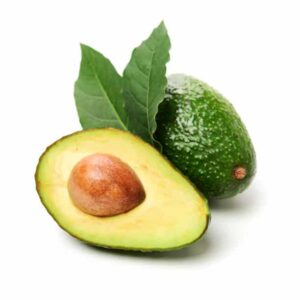 Heart Health
Heart Health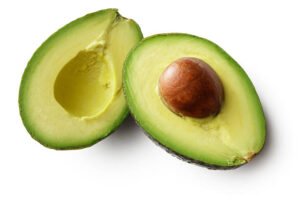 Weight Management
Weight Management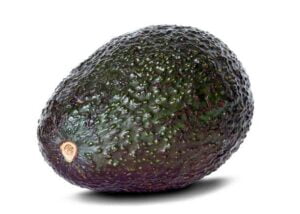 Blood Sugar Regulation
Blood Sugar Regulation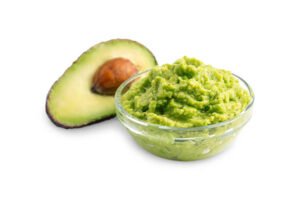 Eye Health
Eye Health Anti-Inflammatory Properties
Anti-Inflammatory Properties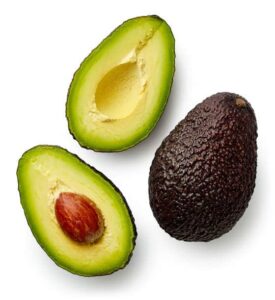 Brain Function
Brain Function Digestive Health
Digestive Health